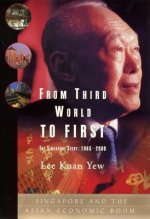
Kód: 04534470
Arab Spring
Autor Jason Brownlee, Tarek E. Masoud, Andrew Reynolds
Several years after the Arab Spring began, democracy remains elusive in the Middle East. The Arab Spring that resides in the popular imagination is one in which a wave of mass mobilization swept the broader Middle East, toppled di ... celý popis
- Jazyk:
 Angličtina
Angličtina - Väzba: Brožovaná
- Počet strán: 340
Nakladateľ: Oxford University Press, 2015
- Viac informácií o knihe

Mohlo by sa vám tiež páčiť
-

Old Bones
11.35 € -13 % -

Therapeutic Work with Sexually Abused Children
98.32 € -

Diary of a Drug Fiend
21.17 € -19 % -

Numerology for Beginners
17.59 € -3 % -

Home Stage
40.72 € -

Gemini Owners' Workshop Manual
30.89 € -13 % -

Horses nine; stories of harness and saddle. By: Sewell Ford . / illustrator: Frederic Dorr Steele, and L. Maynard Dixon /
11.45 €
Darčekový poukaz: Radosť zaručená
- Darujte poukaz v ľubovoľnej hodnote, a my sa postaráme o zvyšok.
- Poukaz sa vzťahuje na všetky produkty v našej ponuke.
- Elektronický poukaz si vytlačíte z e-mailu a môžete ho ihneď darovať.
- Platnosť poukazu je 12 mesiacov od dátumu vystavenia.
Viac informácií o knihe Arab Spring
Nákupom získate 135 bodov
 Anotácia knihy
Anotácia knihy
Several years after the Arab Spring began, democracy remains elusive in the Middle East. The Arab Spring that resides in the popular imagination is one in which a wave of mass mobilization swept the broader Middle East, toppled dictators, and cleared the way for democracy. The reality is that few Arab countries have experienced anything of the sort. While Tunisia made progress towards some type of constitutionally entrenched participatory rule, the other countries that overthrew their rulers - Egypt, Yemen, and Libya - remain mired in authoritarianism and instability. Elsewhere in the Arab world uprisings were suppressed, subsided or never materialized. The Arab Spring's modest harvest cries out for explanation. Why did regime change take place in only four Arab countries and why has democratic change proved so elusive in the countries that made attempts? This book attempts to answer those questions. First, by accounting for the full range of variance: from the absence or failure of uprisings in such places as Algeria and Saudi Arabia at one end to Tunisia's rocky but hopeful transition at the other. Second, by examining the deep historical and structure variables that determined the balance of power between incumbents and opposition. Brownlee, Masoud and Reynolds find that the success of a domestic campaign to oust the ruler was preconditioned by two variables: oil wealth and the precedent of hereditary succession. When rulers were ousted, the balance of power at the time of transition goes far in predicting the character of new constitutional provisions and the trajectory of democratization writ large.
 Parametre knihy
Parametre knihy
Zaradenie knihy Knihy po anglicky Humanities History Regional & national history
54.73 €
- Celý názov: Arab Spring
- Autor: Jason Brownlee, Tarek E. Masoud, Andrew Reynolds
- Jazyk:
 Angličtina
Angličtina - Väzba: Brožovaná
- Počet strán: 340
- EAN: 9780199660070
- ISBN: 0199660077
- ID: 04534470
- Nakladateľ: Oxford University Press
- Hmotnosť: 532 g
- Rozmery: 236 × 155 × 24 mm
- Dátum vydania: 19. February 2015
Obľúbené z iného súdka
-

Hundred Years' War on Palestine
12.06 € -24 % -

Decline and Fall of the Roman Empire
5.92 € -21 % -

Ten Myths About Israel
13.60 € -14 % -

Strange Death of Europe
16.57 € -23 % -

The Secret Diaries Of Miss Anne Lister: Vol. 1
13.60 € -14 % -

Londoners
11.25 € -25 % -

History of Japan
16.36 € -19 % -

Medieval Monsters
11.14 € -23 % -

Ninja, The Secret History of Ninjutsu
15.34 € -16 % -

In The Garden of Beasts
12.17 € -21 % -

Maurice's Strategikon
30.48 € -2 % -

Polish Saber
62.71 € -

Wages of Destruction
21.99 € -23 % -

Viking Age Iceland
15.34 € -21 % -

From Third World to First
31.81 € -23 % -

Introduction to the History of the Principal Kingdoms & States of Europe
17.08 € -

Benes & Masaryk: Czechoslovakia
16.26 € -13 % -

Great Fire of London
3.57 € -24 % -

Becoming Indian
39.59 € -

Blind Mans Bluff
12.27 € -23 % -

Life on the Mississippi
12.27 € -20 % -

Bloodtaking and Peacemaking
47.16 € -

Middle Byzantine Historians
214.46 € -

Anatomy of the Nuremberg Trials
17.59 € -3 % -

Modern France: A Very Short Introduction
9.40 € -34 % -

Ethnic Cleansing of Palestine
14.42 € -23 % -

Palestine
20.25 € -20 % -

Giza Power Plant
16.05 € -16 % -

Citizens
21.99 € -23 % -

Women Who Shaped Politics
24.85 € -13 % -

The Balkans, 1804-2012
21.99 € -23 % -

Age Of Revolution
16.57 € -23 % -

The Thirteenth Tribe
12.58 € -

Millennium
13.19 € -22 % -

Alexiad
17.79 € -20 % -

Conquest of New Spain
14.42 € -23 % -

Heraclius, Emperor of Byzantium
33.35 € -18 % -

1948
24.65 € -10 % -

Annals of Imperial Rome
14.42 € -23 % -

Strike and Hold
29.87 € -4 % -

Diana: Her True Story - In Her Own Words
11.04 € -23 % -

How to be a Victorian
14.42 € -23 % -

The Oxford History of Ancient Egypt
15.44 € -23 % -

Line in the Sand
11.76 € -2 % -

Rise And Fall Of The Third Reich
21.99 € -23 % -

Illustrated Encyclopedia of Uniforms of the American War of Independence
21.99 € -23 % -

Olympic, Titanic, Britannic
30.28 € -15 % -

Vanished Kingdoms
18.82 € -22 % -

Footnotes in Gaza
27.31 € -13 %
Osobný odber Bratislava a 2642 dalších
Copyright ©2008-24 najlacnejsie-knihy.sk Všetky práva vyhradenéSúkromieCookies



 21 miliónov titulov
21 miliónov titulov Vrátenie do mesiaca
Vrátenie do mesiaca 02/210 210 99 (8-15.30h)
02/210 210 99 (8-15.30h)